News
Superfrau upcycles liquid whey for energy drinks
22 Dec 2022
US company Superfrau turns surplus whey into sustainable, upcycled-certified dairy products for the recovery drinks market.
The US brand produces an electrolyte recovery drink that aims to sit in the sustainable dairy product category. “We’re on a mission to fight food waste and climate change by offering unique and delicious products made with the surplus nutrition in our supply chain that would otherwise be wasted,” says Melissa Martinelli, co-founder and CEO of Superfrau.
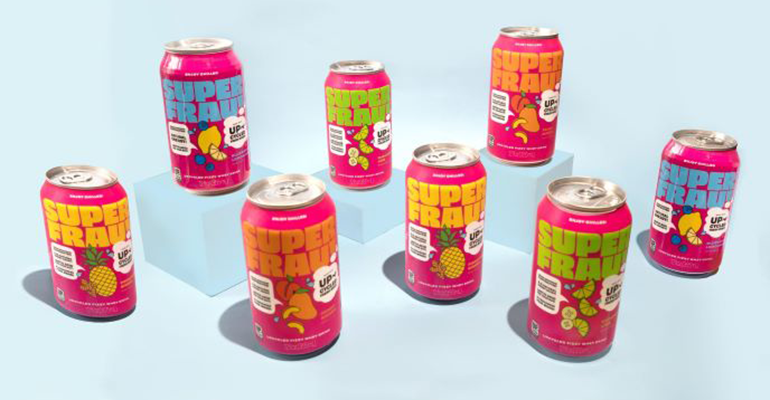
Superfrau means Super Woman in German. While Superfrau does not categorise itself as a sports drink, per se, the brand has identified a white space in the energy drink category for products and brands that meet the needs of young female consumers, the brand states.
Reimagining ‘energy’ drinks
Over the last five years, Superfrau has undertaken research on its target market: Gen Z and millennials aged 20 to 35. The brand learned the demographic is prioritising sustainability, is willing to pay more for these products and is searching for healthy alternatives to soda and energy drinks. Simultaneously, its target audience is curious about global innovations and flavours.
Developing its formulation, Superfrau sought to stand out by avoiding the inclusion of any added sugar or sweeteners. Thus, replacing overly sweet or heavily caffeinated energy drinks. Superfrau infuses the fresh whey with its proprietary blend of fruit extracts before packaging it in recyclable bottles. By adopting this approach, Superfrau aims to help the sports drink market reach health-conscious consumers who are looking to hydrate without added sugar and artificial colours.
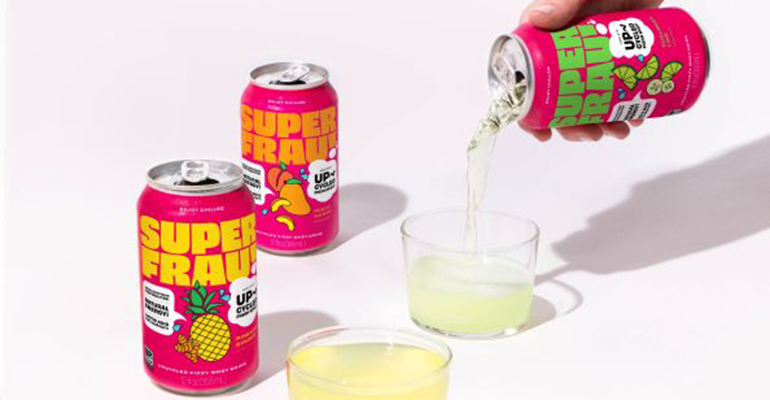 Image courtesy of Superfrau
Image courtesy of Superfrau
Surplus whey stands out
Taking inspiration from the Austrian Alps and bringing it to the US, the brand began life in 2018 after Martinelli was “blown away by the taste and satisfaction of a popular drink in the Austrian Alps made with fresh whey”. Following its research, Superfrau found that the vitamins and minerals contained within whey are good for hydration, energy, and gut health.
In the US, less than half of the 100 billion pounds of whey generated every year are fully utilised, despite their vitamin and mineral content, Martinelli says. Therefore, Superfrau adopted a US take on the popular European drink, highlighting the naturally occurring benefits of liquid whey, such as its spectrum of electrolytes for hydration, zinc for immunity support, B vitamins for natural energy and gut-beneficial acids.
The food tech brand says it focuses on whey because of its taste, vitamin-and-nutrient-rich profile and proven nature in other markets, but also because of its vast abundance in the US and versatility. “There are so many things manufacturers could do with their surplus liquid whey to feed people valuable nutrition,” says Martinelli. “We are just getting started!”
Collaborating with cheese and yoghurt manufacturers
Superfrau primarily partners with Greek yoghurt manufacturers to capture their surplus liquid whey. The US producer repurposes this milk into nutrient-dense products.
Manufacturers heat the milk, add culture and let it ferment. While it ferments, it separates into curds (the yoghurt) and whey (Superfrau’s liquid). Both product ingredients contain vitamins and minerals essential for human health that sit within the unique offering of cultured and fermented dairy, Martinelli says.
As an Upcycled Certified product, Superfrau undergoes a third-party review to ensure a transparent supply chain that creates valuable products from nutritious ingredients, which, in current manufacturing processes, would typically go to waste.
“It has become a cost centre for many manufacturers that have to pay to have the heavy liquid hauled away and properly disposed of,” says Martinelli. “We see a great waste-to-value opportunity in the dairy supply chain to take an abundantly available and overlooked ingredient and make super delicious and nutritious products out of it,” Martinelli adds.
Greek yoghurt is thicker, which means more liquid whey is strained out than in typical yoghurt manufacturing, resulting in roughly two-three cups of liquid whey for every cup of Greek yoghurt. “The hard part is changing the currently existing supply chain from one that treats the whey as a pesky byproduct to one that maximises its versatility as a valuable co-product,” says Martinelli.
For its whey beverages, the brand infuses the liquid whey with complementary flavours, adding a lactase enzyme to break up the lactose, citric acid for pH balance and effervescence to mirror consumer demands.
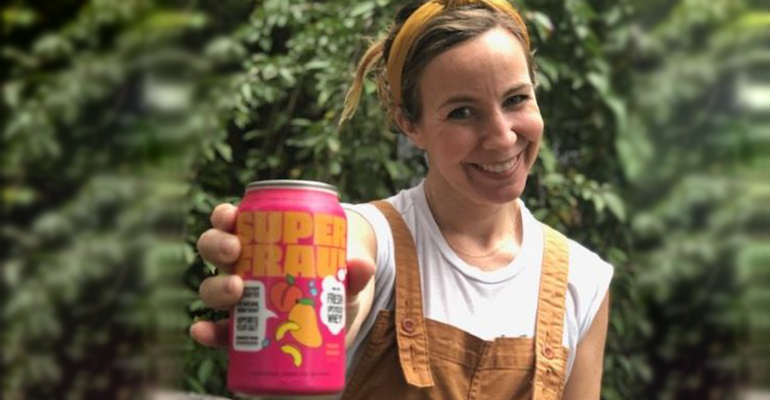 Image courtesy of Superfrau
Image courtesy of Superfrau
2023: Eyeing up expansion
“We have big plans for 2023,” says Martinelli. The brand is currently working with a distributor, which will enable it to expand into other regions of Whole Foods and various speciality retail chains as well as food service, conventional grocery and convenience stores.
With the ambition of becoming a leader in the upcycled food movement, the brand is exploring more flavours, formats and applications for surplus liquid whey.
Related news

Oat Barista: Innovation for game-changing beverages
20 Nov 2025
Oat Barista is a clean label, sustainable, and innovative drink base specifically designed to create the perfect foam in one single ingredient.
Read more
How younger consumers are redefining ingredient choices and rejecting brand loyalty
18 Nov 2025
Gen Z and millennial consumers’ preferences for transparency, functionality, and purpose are “redefining the very nature of consumption itself”, says SPINS.
Read more
Hybrid formats and flexible positioning to disrupt category norms in 2026
17 Nov 2025
Trend forecasters expect food and drink to move more fluidly across occasions, functions, and formats as consumers seek versatility, novelty, and convenience.
Read more
Danone highlights digestive health as potential ‘tipping point’ for food industry
13 Nov 2025
Danone is betting on a food industry “tipping point” that will bloat the market for healthy products, particularly those related to gut health.
Read more
New UPF standard hoped to offer consumers ‘coherence and clarity’
10 Nov 2025
Ingredients companies are being urged to enter “a new era of partnership and innovation” following the launch of the industry’s first non-UPF verification scheme.
Read more
Faravelli at Fi Europe: Showcasing FARA® functional solutions for food and nutra
28 Oct 2025
At Fi Europe 2025 in Paris (stand 72M39), Faravelli showcases FARA® Customized Functional Solutions and a wide ingredient portfolio for food and nutra – delivering quality, innovation, and expertise.
Read more
Agrigum Redefined FIBER
27 Oct 2025
Agrigum has transformed gum acacia into a natural, science-backed fibre that supports gut health, sustainability, and innovation across global food and nutrition applications.
Read more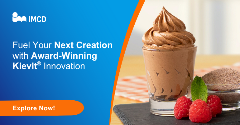
Expanding boundaries in food & beverage innovation
23 Oct 2025
IMCD and FrieslandCampina Professional expand partnership to deliver Kievit® across EMEA, enabling brands to enhance quality and accelerate time-to-market for tomorrow’s food & beverage creations.
Read more
Amazon Grocery launch aims to balance quality with affordability
22 Oct 2025
Global e-commerce giant Amazon has introduced a new private-label food brand, combining existing Amazon Fresh and Happy Belly products with new everyday items.
Read more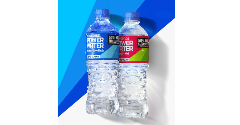
Powerade enters hydration space with launch of Power Water
21 Oct 2025
Coca-Cola’s Powerade brand has launched a zero-sugar, electrolyte-enhanced functional water, marking the brand's entry into the hydration space.
Read more